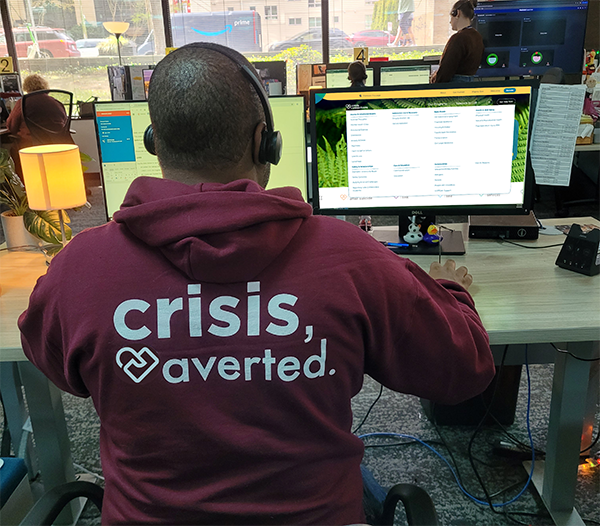Our community needs you!
Be the hope on the line. Our volunteers answer calls, texts, and chats every day from people in crisis. As a trained crisis specialist or peer support volunteer, you help people through challenging moments and tough days. You will help people seeking emotional connection, crisis intervention, peer support, and more. You will provide judgment-free, compassionate support to anyone in need. And you will learn a lot about how to support yourself and others.
Everyone can help — bring your lived experience, and we'll support your learning and growth.
Inspire hope, share help. Volunteer.
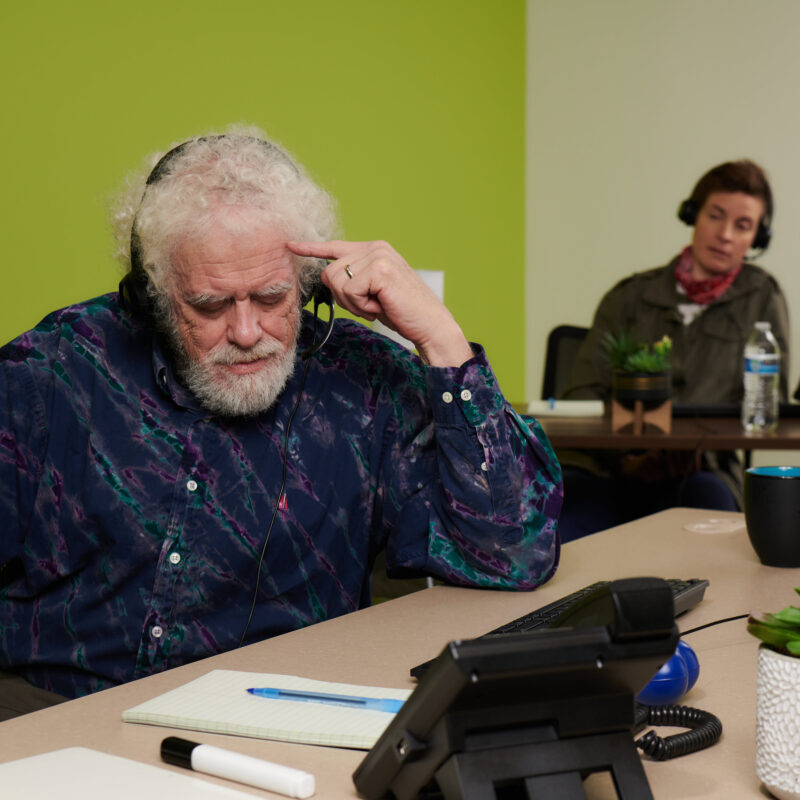

The Washington Warm Line provides peer support, meaning that all volunteers for the Warm Line have lived experience with emotional and behavioral health issues. Warm Line volunteers undergo an intensive training in active listening, emotional support, and the core tenets of peer support and recovery. Warm Line volunteers must be 21 and able to take on a weekly 4-5 hour shift in our Seattle office between 9am and 10pm.

Teen Link provides peer emotional support to teens throughout the state of Washington via phone, chat and text. Teen Link has opportunities for both teens and adults to involve themselves in providing direct support for struggling youth over our phone line or by engaging in outreach efforts to raise awareness around youth mental health.
Teen Link phone line volunteers must be 15 and able to take on two 4.5-hour shifts per month in our Seattle office between 5:30pm and 10pm. Outreach opportunities are also available for youth ages 13-15. Adult volunteers (21+) must be available to take on a weekly 4.5-hour shift from 5:30-10:00pm in our Seattle office. Adult volunteers monitor calls, texts, and chats, and support the teen volunteers on shift.
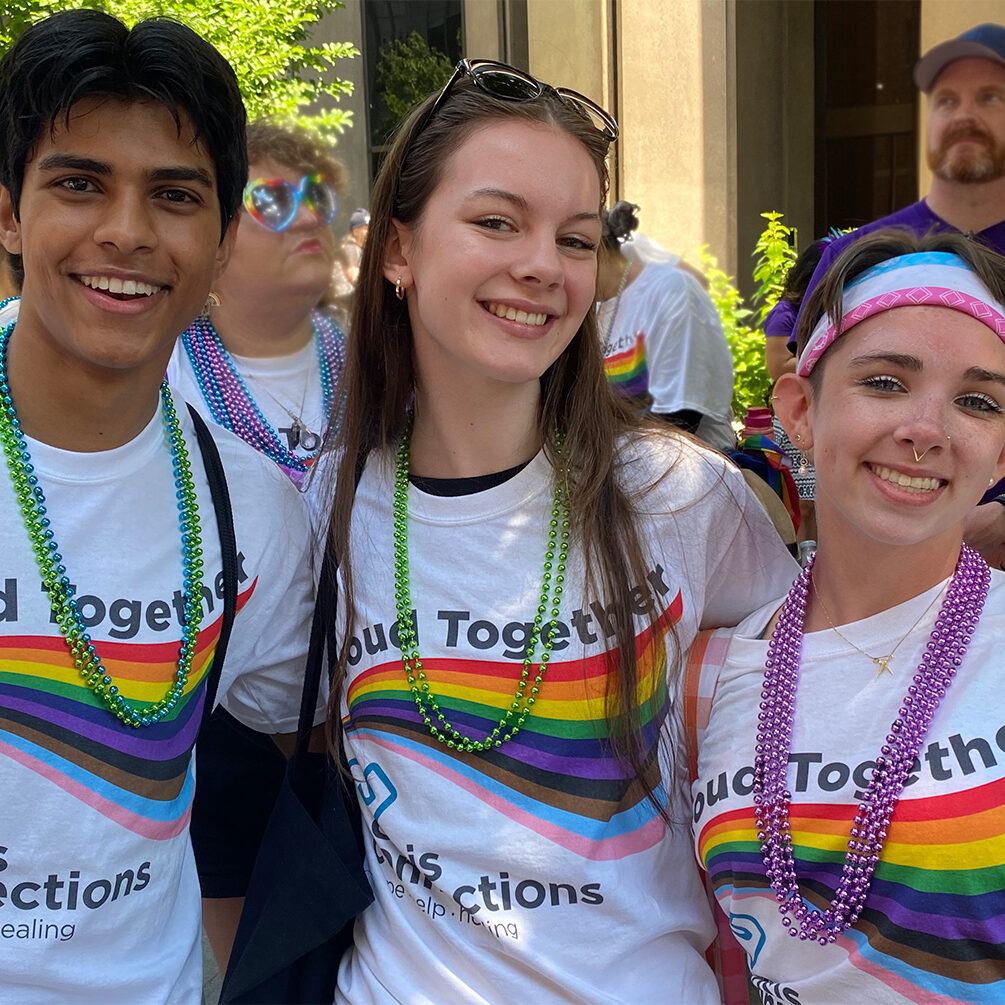
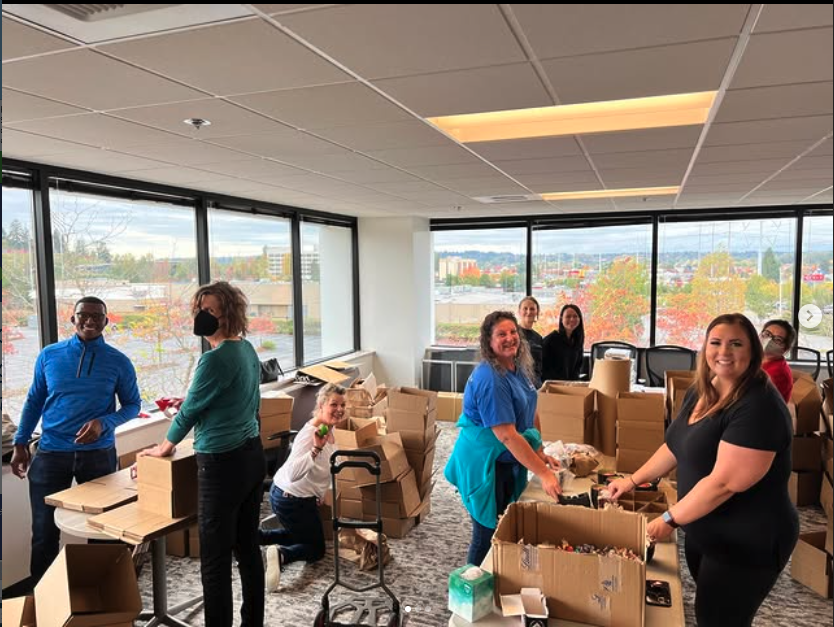

Washington Support After Suicide provides mentorship, care packages and support groups to people who have lost a loved one to suicide. Volunteer grief companion peers have suffered a similar loss, turning pain into purpose through their compassionate support of other suicide loss survivors. They offer connection, understanding and companionship to program participants.
What is it like to volunteer at Crisis Connections?
Volunteer reflections
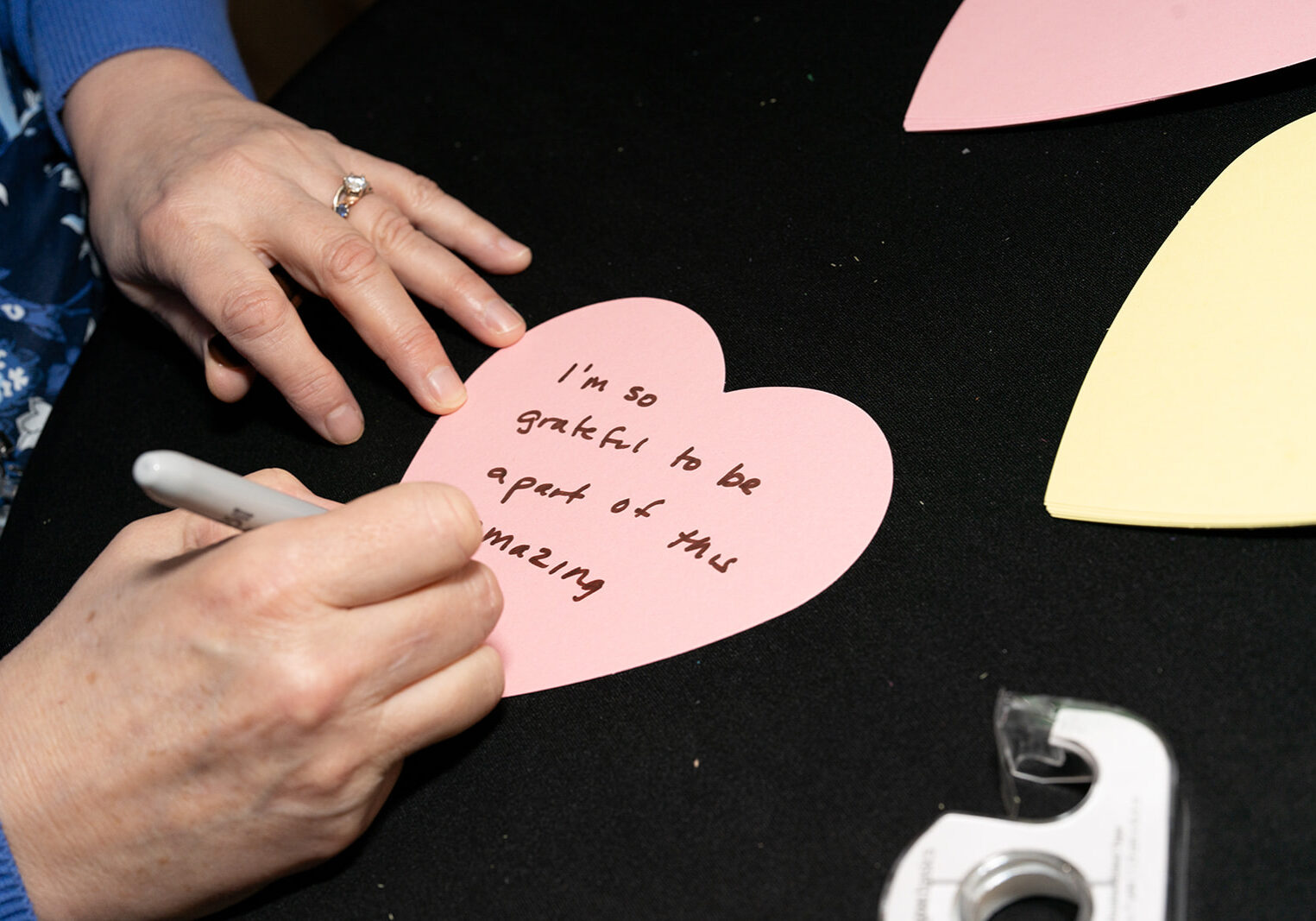
Volunteers at Crisis Connections come from all walks of life, each bringing unique experiences supporting others through mental and emotional health challenges and recovery, moments of crisis, and the need for essential resources.
What unites them is compassion and a shared commitment to helping others find hope, help, and healing.
Read their stories and see how they make a difference.
Devon
Grief Companion Peer"I wish I had reached out sooner for help after my brother died by suicide. I found this community six years later and felt a sense of connection and safety not found elsewhere. Surviving a loss from suicide can only truly be understood by someone who has also experienced a loss this way. WASAS provides a safe space where I feel supported and heard. I can talk openly about my loss and provide support and understanding to others. I feel like I am part of an essential service-centered community."
"I'm happy to be part of this community. I feel like I found a purpose in life when volunteering."
"I appreciate deeply the work that Crisis Connections does and the opportunities given to volunteers to help in healing our community. It's good work to be doing."
"It's been an honor and privilege to serve here for the past 10 years. Thank you for all you and continue to do for our community."
"Starting with Crisis Connections has been more rewarding than I ever imagined. Thank you!"
"I'm thankful for the training and opportunity I've been given to help give back to the world."
Day in the life of a phone worker volunteer
- Gather your notepad, pen, and a stress-relieving squishee.
- Start taking calls, responding to texts and chats.
- Take a self-care break!
- Connect with fellow volunteers and staff.
